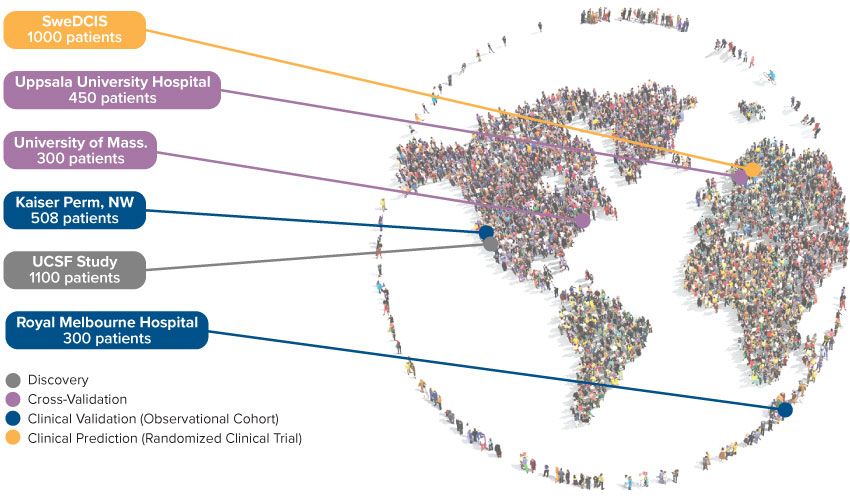The Science of Our Name.
DCIS Therapeutic Challenges
Our Science
The DCISionRT test combines the latest innovations in molecular biology with artificial intelligence and machine learning to deliver the most advanced DCIS test available. DCISionRT is the first biological risk signature developed specifically for DCIS and the only test that predicts radiation therapy benefit.
Discovery
As DCIS incidence increased with the rise of mammographic screening programs, researchers at University of California, San Francisco embarked on an ambitious discovery program to identify factors contributing to DCIS recurrence and progression to invasive breast cancer.
Development
The PreludeDx team launched the development of DCISionRT with the vision of creating a DCIS test that not only offered women an individualized risk of recurrence but could also predict her individualized radiation therapy benefit. DCISionRT was developed with multiple studies totaling over 650 women—the largest combined study population ever used in development of a DCIS test.
Validation
DCISionRT is the only DCIS test validated with published Level 1b clinical evidence, meaning the test demonstrated consistent results in multiple studies including a randomized clinical trial. From development to validation, clinical evidence includes studies totaling over 2000 patients. DCISionRT was shown in the SweDCIS randomized clinical trial
Global Clinical Collaboration

